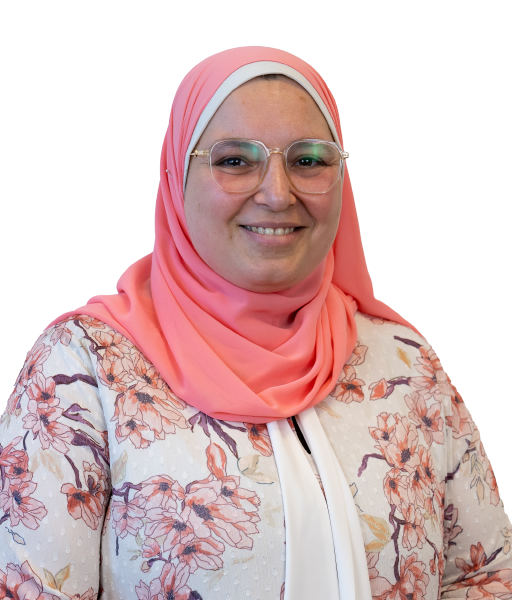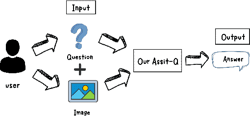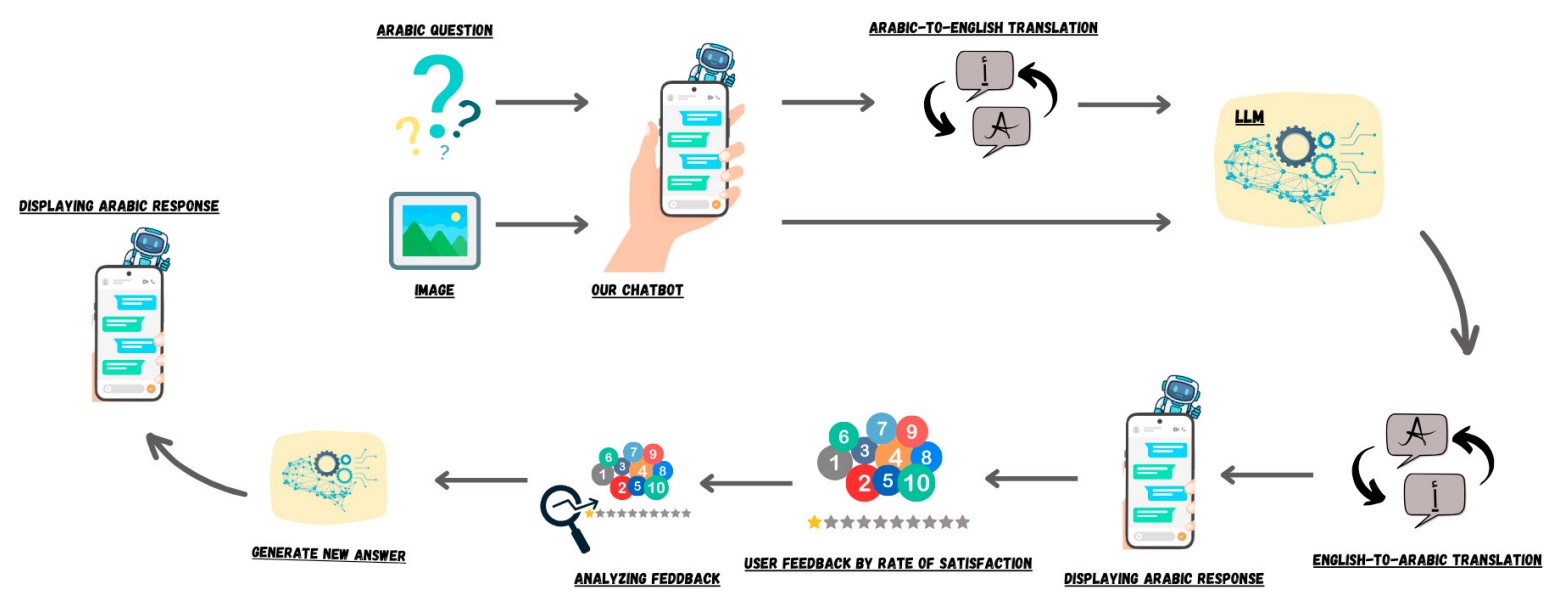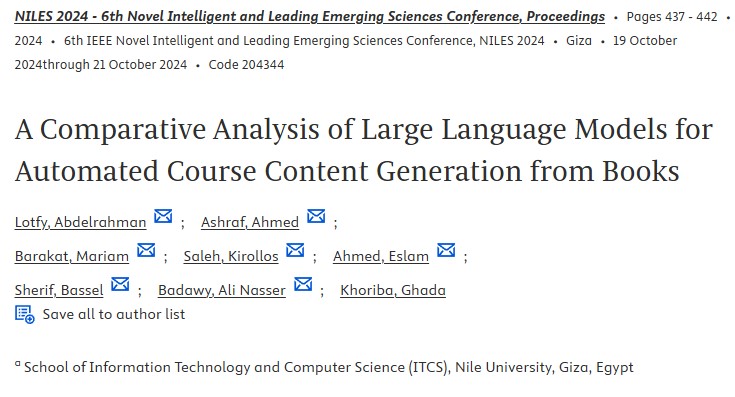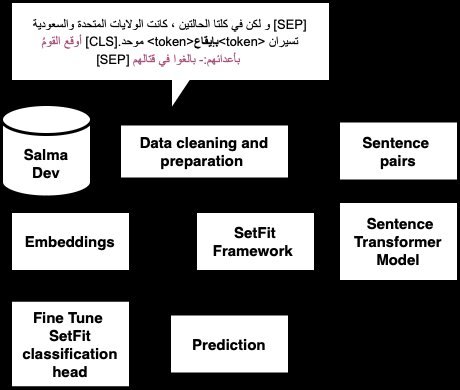Faculty Office Ext.
3044
Faculty Building
UB 1
Office Number
212
Dr. Ghada Khoriba, an IEEE and ACM member, is an associate professor at the School of Information Technology and Computer Science at Nile University. She received a bachelor's degree from Helwan University in 2000 and an M.Sc. from Helwan University in 2004.
She received her Ph.D. in computer science from the University of Tsukuba, Japan, in 2010 and was promoted to associate professor in 2020. She is also an associate professor in the Department of Computer Science at Helwan University, where she has been since 2000.
Her research interests include Medical Image Analysis, Machine Learning Techniques and Optimization Problems, Deep Learning Models, Swarm Algorithms, Computer Vision, Natural Language Processing, LLMs, and Knowledge Graphs
Pagination
- Medical Imaging and Image Processing MIIP
- Data Mining
- Natural Language Processing

